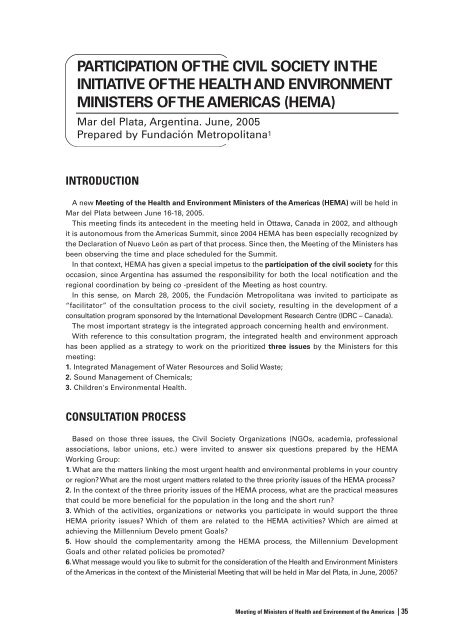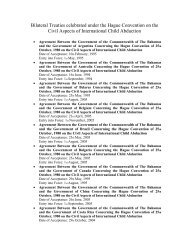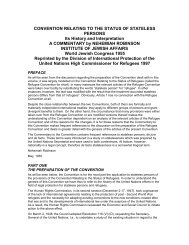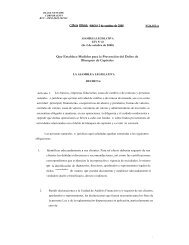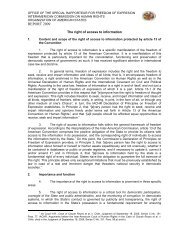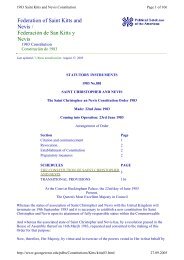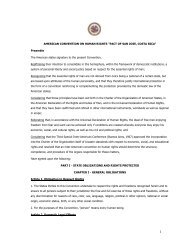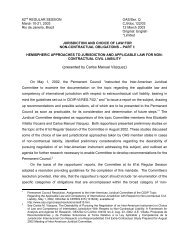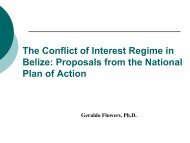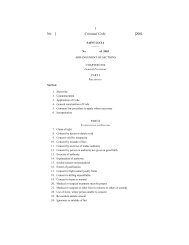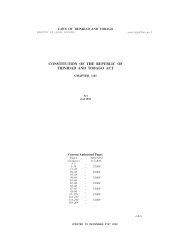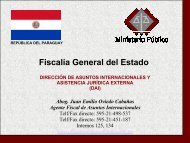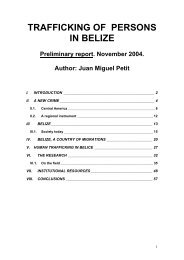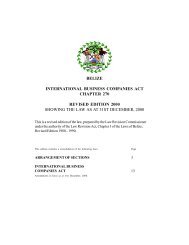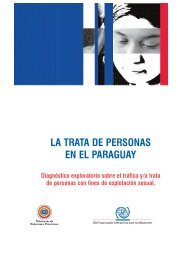(HEMA) Initiative. - OAS
(HEMA) Initiative. - OAS
(HEMA) Initiative. - OAS
You also want an ePaper? Increase the reach of your titles
YUMPU automatically turns print PDFs into web optimized ePapers that Google loves.
PARTICIPATION OF THE CIVIL SOCIETY IN THE<br />
INITIATIVE OF THE HEALTH AND ENVIRONMENT<br />
MINISTERS OF THE AMERICAS (<strong>HEMA</strong>)<br />
Mar del Plata, Argentina. June, 2005<br />
Prepared by Fundación Metropolitana 1<br />
INTRODUCTION<br />
A new Meeting of the Health and Environment Ministers of the Americas (<strong>HEMA</strong>) will be held in<br />
Mar del Plata between June 16-18, 2005.<br />
This meeting finds its antecedent in the meeting held in Ottawa, Canada in 2002, and although<br />
it is autonomous from the Americas Summit, since 2004 <strong>HEMA</strong> has been especially recognized by<br />
the Declaration of Nuevo León as part of that process. Since then, the Meeting of the Ministers has<br />
been observing the time and place scheduled for the Summit.<br />
In that context, <strong>HEMA</strong> has given a special impetus to the participation of the civil society for this<br />
occasion, since Argentina has assumed the responsibility for both the local notification and the<br />
regional coordination by being co -president of the Meeting as host country.<br />
In this sense, on March 28, 2005, the Fundación Metropolitana was invited to participate as<br />
“facilitator” of the consultation process to the civil society, resulting in the development of a<br />
consultation program sponsored by the International Development Research Centre (IDRC – Canada).<br />
The most important strategy is the integrated approach concerning health and environment.<br />
With reference to this consultation program, the integrated health and environment approach<br />
has been applied as a strategy to work on the prioritized three issues by the Ministers for this<br />
meeting:<br />
1. Integrated Management of Water Resources and Solid Waste;<br />
2. Sound Management of Chemicals;<br />
3. Children's Environmental Health.<br />
CONSULTATION PROCESS<br />
Based on those three issues, the Civil Society Organizations (NGOs, academia, professional<br />
associations, labor unions, etc.) were invited to answer six questions prepared by the <strong>HEMA</strong><br />
Working Group:<br />
1. What are the matters linking the most urgent health and environmental problems in your country<br />
or region? What are the most urgent matters related to the three priority issues of the <strong>HEMA</strong> process?<br />
2. In the context of the three priority issues of the <strong>HEMA</strong> process, what are the practical measures<br />
that could be more beneficial for the population in the long and the short run?<br />
3. Which of the activities, organizations or networks you participate in would support the three<br />
<strong>HEMA</strong> priority issues? Which of them are related to the <strong>HEMA</strong> activities? Which are aimed at<br />
achieving the Millennium Develo pment Goals?<br />
5. How should the complementarity among the <strong>HEMA</strong> process, the Millennium Development<br />
Goals and other related policies be promoted?<br />
6.What message would you like to submit for the consideration of the Health and Environment Ministers<br />
of the Americas in the context of the Ministerial Meeting that will be held in Mar del Plata, in June, 2005?<br />
Meeting of Ministers of Health and Environment of the Americas |35


